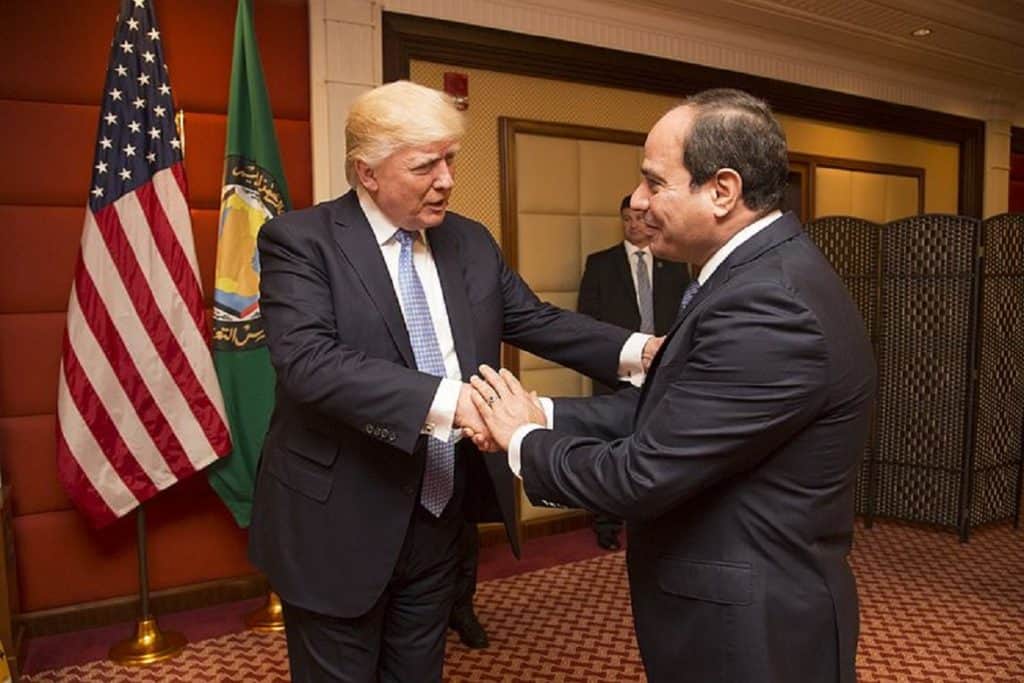By Denis Korkodinov
The first signal was Egypt’s withdrawal from the “Arab NATO”. Creating a dominant position of Saudi Arabia in the Arab world can also have negative consequences for Israel. Cairo very carefully informed the Saudis and Americans that it was suspending its membership in the Middle East Strategic Alliance against Iran.
Because of this, the “Arab NATO” project turned out to be complete, not yet having time to be realized, since from the very beginning it was deprived of the participation of the state possessing one of the most powerful armies in the Arab world. Without Egypt, the aspirations of the Arabs to resist the Ayatollah regime are doomed to failure.
The international press, as a rule, tried to ignore the topic of suspending Cairo’s participation in a conditional organization. In the end, a public discussion of this fact would indicate recognition of defeat in front of Tehran. At the same time, the Egyptian tabloids, contrary to the opinion of Washington and Riyadh, were filled with headlines almost daily about why Abdul-Fattah al-Sisi made such a decision. Such headlines in the media could not appear without the consent of the administration of the leader of Egypt.
It is worth noting that the decision of Abdul-Fattah al-Sisi was due primarily to his disagreement with Donald Trump’s ideas about forcing Iran to peace. In addition, Egyptian President clearly doubts Donald Trump’s ability to win the US presidential election in 2020. Abdul-Fattah al-Sisi believes that heightening anti-Iranian hysteria is dictated by the desire of the American leader to organize a small war as an excuse to extend his presidential powers.
At the same time, Cairo proceeds from the opinion that after 2020 the new head of the White House will radically change its attitude towards Tehran, in connection with which, at present Egypt does not intend to take part in the dubious initiatives of the US President and prefers to wait for time.
But the main reason for the decision of the Egyptian leader is that Cairo does not consider Tehran as a source of threat. Now for Egypt is a much greater danger Ethiopia and Sudan, which controls the upper part of the Nile. Cairo reasonably believes that the plans of these countries for the construction of large hydroelectric power plants could threaten with large floods, which will negatively affect the development of the Egyptian economy.
The goal of the official Cairo armed forces is, first of all, to secure the waters of the Nile, while confrontation with Iran does not seem to be a vital undertaking. Abdul-Fattah al-Sisi maintains a fairly friendly relationship with the Emir of Qatar, Tamim bin Hamad al-Thani, who strongly opposes Riyadh’s desire to dominate the Arab world. Among other things, Qatar is very loyal to Tehran and has close ties with Turkish President Recep Erdogan.
This allows Egypt to pursue a policy independent of the Saudis and to stand on the side of the Ayatollah regime. In turn, participation in the activities of the Middle East Strategic Alliance can significantly ruin the relationship between Cairo and Doha.
At the same time, the withdrawal of Egypt from the organization forces Israel to also think about the fact that its participation in the alliance becomes undesirable. The fact is that Egypt has a certain influence on Palestine, and in the event of a worsening of relations between Tehran and Tel Aviv, President Abdul-Fattah al-Sisi can give the green light to the next Palestinian intifada.
In the run-up to the upcoming US elections, Donald Trump is unlikely to do anything against the Egyptian obstinacy. And this is very well understood by Abdul-Fattah al-Sisi, who under other circumstances would not have decided to leave the “Arab NATO”. However, Cairo is very risky, because it is possible that after 2020, Donald Trump could retain his power in Washington, and then American anger could fall upon the Egyptian leader.
(The opinions expressed in this article are solely those of the author and do not necessarily reflect the views of World Geostrategic Insights).







